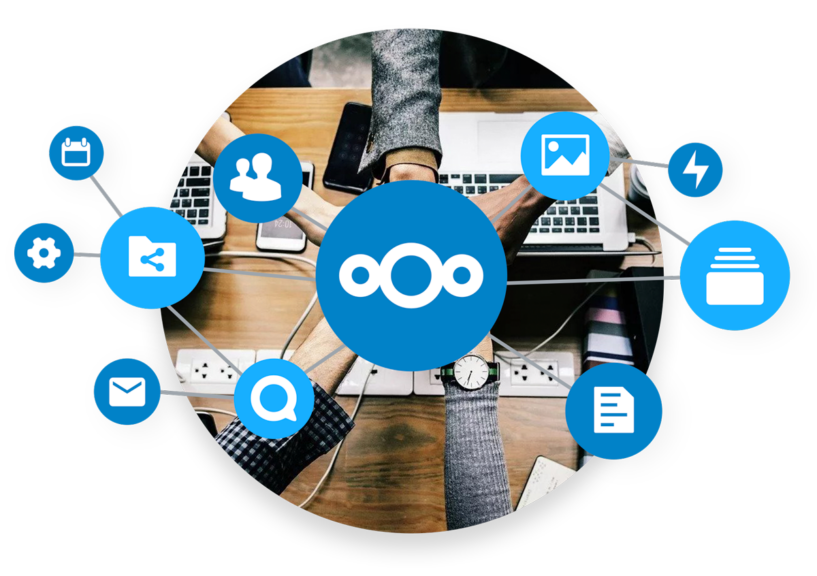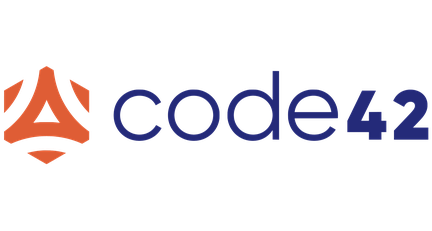Enterprise file sync and share platform
Take control over your data with the most secure self-hosted file syncing tool. Nextcloud provides a unique scalable architecture that can serve millions of users while keeping them happy with powerful, user-friendly file sharing tools.
Why self-hosting?
Simply keeping your data behind your company firewall rather than in the cloud makes compliance and security easy.
With Nextcloud, you don’t lose the benefits of modern cloud collaboration and team productivity!
Why file sync and share?
Your FTP or Windows Network Drive simply don’t suffice – employees work around, rather than with them, using Dropbox and other unsafe solutions. Nextcloud puts your IT back in control over your data.
Why Nextcloud?
Nextcloud is a secure online file sharing software that provides an unique combination of security and control over data without compromising usability. Being open source means no vendor lock in and an unprecedented degree of integration in enterprise infrastructure.
Studies and surveys
Risks of an uncontrolled SaaS strategy
Seventy-five percent of companies (…) rely on email for file sharing and collaboration, while more than half use FTP sites.
A Code42 study concluded employers fail to stop employees from syncing company files to personal cloud accounts.
A study by Veritas Technologies shows the wild growth in SaaS services multiplies the cost of ransomware attacks.
Considering all the risks, it is not surprising to see 70% of enterprises move their core SaaS applications back on premise. Forrester urges senior corporate management and IT professionals to shift away from ad-hoc solutions like email, outdated technologies like FTP or customer-grade file sync and share like Dropbox or Google Drive.
Why care about
your file sharing channels
Forrester’s study shows, over a half of the teams use personal tools to share code, patches and other intellectual property within the organization as well as with customers. These solutions neither protect intellectual property nor competitive advantage, and also offer little control or rights management, nor audit and tracking controls.

Key solution requirements identified by Forrester:
Enterprise-grade security, with governance and policies to protect valuable content and code
Ease of use, working in familiar apps such as email to avoid disruption and adoption challenges
Integration APIs for the engineering, support desk, and other essentials
Start fast and secure file transfer today
Save your budget while keeping employees happy and loyal to your IT. Discover the leading on-premises content collaboration platform.
Nextcloud: A real solution
Secure self-hosted file access, sync and share solution
Self hosted file access, sync and share solution
By providing businesses a self hosted file access, sync and share solution with powerful integration in existing infrastructure and storage solutions, Nextcloud makes data available to users wherever it is. No need for new storage solutions or moving all data over. Easy integration and quick deployment brings organizations immediately in a compliant, secure state.
Secure with a low barrier to entry
Its familiar, easy to use interface on web, mobile and desktop allows users to work efficiently and be confident everybody has access to the same, latest version of data. Its enterprise capabilities ensure IT maintains full control over sharing, retention and availability of data within and across the boundaries of the organization.
Decentralized and hybrid
Last but not least, Nextcloud is a perfect fit for a Hybrid Cloud strategy, enabling universal access to data irrespective of where it is stored: on an internal network, in the cloud or even at a partner. Through Global Scale, it is possible to host multiple separate Nextcloud servers to ensure data locality rules are while inter-server sharing and encryption of unsafe storage ensure data is both safe and seamlessly accessible at all times.
Ten issues with data silos
Employees in modern organizations use tens, sometimes dozens different online services for tracking tasks, tickets, managing blogs, updating documentation, editing files, communicating with partners and more. But this outgrowth of IT services complicates work and multiplies the risk of data leaks.
Complexity that
steals your time
Uncontrolled
security risks
Future-ready
Simple and agile collaboration platform
Gartner typically calls solutions in this space Enterprise File Sync and Share or EFSS. In the last years, the market has been moving on to providing a next generation EFSS, called Content Collaboration Platform, integrating online document editing, communication and planning capabilities complementing the file exchange technologies.
Nextcloud is a leading vendor in this new space, offering these capabilities with Nextcloud Groupware and Nextcloud Talk, delivering seamless communication features integrated in Files. Users can attach a note to shares, comment on files, open a chat or even start a call directly, connecting files to these conversations to keep track of it all. Integrated email and calendaring connect projects and teams to the files they work with, and with Deck, Nextcloud provides a kanban board app which works together with all those.

Benefits of a secure file sharing
No new data silos
Under IT’s control
With uniquely layered encryption
At global scale and ensuring data locality
Nextcloud
Designed for the real world
Users can access data on a FTP drive shared with another company; while data stored on an external object storage could be encrypted using server-side encryption so the storage provider has no way to compromise their security.
Meanwhile, files from the HR department are always enforced to be end-to-end encrypted on their clients, protecting their files from even the worst case of a full server breach.
In the back-end, IT can use a mix of local NFS or SharePoint storage, public S3 compatible storage and even blockchain technology to find the perfect mix between performance, reliability, security and cost.
The layered approach to security makes sure users have the maximum amount of productivity in their web interface while making sure sensitive data receives the ultimate protection, client-to-client. Keeping it all in a single solution simplifies management and avoids mistakes from users or IT departments that might cause costly data leaks.
Get started today
Contact us to learn how we can help you secure corporate data.
Frequently asked questions
A secure file exchange platform is a digital solution designed to facilitate the safe and encrypted transfer of files between users or organizations. It employs various security measures to protect data during transit and storage, ensuring confidentiality, integrity, and availability.
When evaluating secure self-hosted file access solutions, it’s crucial to prioritize features such as end-to-end encryption, multi-factor authentication, access controls, audit trails, and regular security updates. These features help safeguard sensitive data and mitigate the risk of unauthorized access or data leakage.
Unlike cloud-based alternatives, self-hosted file access solutions enable organizations to retain full control over their data by hosting it on-premises or in a private cloud environment. This level of control allows businesses to enforce strict security policies, customize configurations, and protect sensitive information from third-party access.

